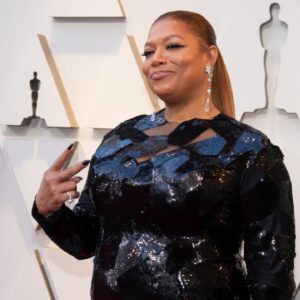Introduction
In the vast landscape of contemporary music, few artists have managed to resonate as deeply with audiences as Kelly Clarkson. Since her meteoric rise to fame as the inaugural winner of “American Idol” in 2002, Clarkson has not only established herself as a powerhouse vocalist but has also become a cultural icon. Her ability to connect with listeners through heartfelt and relatable lyrics has forged a bond that transcends the typical artist-audience divide. This connection stems from her genuine portrayal of empowerment, vulnerability, and social consciousness, making her music both a soundtrack to individual struggles and a rallying cry for collective resilience.
Empowerment and Resilience
One of the most striking aspects of Clarkson’s body of work is her commitment to themes of empowerment, particularly for women. In an industry often fraught with pressures and expectations, Clarkson’s lyrics serve as a reminder of strength and self-acceptance. Songs like “Stronger (What Doesn’t Kill You)” have become anthems of resilience, encouraging listeners to rise above adversity. The song’s central message—that hardship can ultimately fortify one’s spirit—has had a profound impact on listeners’ self-esteem. Its catchy refrain, underscored by Clarkson’s powerful delivery, embodies a universal truth: that we can emerge stronger from our challenges.
Moreover, Clarkson’s emphasis on female empowerment resonates across generations. In a time when women are increasingly asserting their rights and voices in society, songs like “Since U Been Gone” capture the spirit of independence and self-liberation. The lyrics celebrate breaking free from toxic relationships, inspiring listeners to prioritize their own well-being. Through her music, Clarkson instills a sense of courage in her audience, encouraging them to embrace their worth and assert their identity.
Authenticity and Vulnerability
Another hallmark of Clarkson’s artistry is her unflinching authenticity. She has never shied away from sharing her personal struggles, a quality that endears her to fans. Tracks like “Because of You” reveal the raw pain of her childhood experiences, delving into themes of family dysfunction and emotional turmoil. This candidness not only provides listeners with a glimpse into Clarkson’s life but also offers solace to those grappling with similar issues. By articulating her vulnerabilities, she fosters a space for empathy and understanding.
Her willingness to expose her innermost feelings resonates profoundly, as many listeners find solace in knowing they are not alone in their struggles. This connection is especially significant for young people navigating the complexities of identity and emotional health. Clarkson’s ability to articulate difficult emotions in a relatable way enables her music to serve as a therapeutic outlet, reinforcing the idea that vulnerability can be a source of strength.
Social Commentary
Beyond personal narratives, Clarkson’s lyrics often engage with broader societal issues, reflecting her role as a conscientious artist. Her songs touch on topics such as mental health, relationships, and self-acceptance, encouraging critical dialogue around these subjects. For instance, “Piece by Piece” explores the theme of parental abandonment and its lingering effects, prompting listeners to confront the complexities of familial relationships. The song’s emotional depth illustrates the struggle for self-worth and healing, serving as both a confession and a beacon of hope for those in similar situations.
Moreover, Clarkson’s commitment to addressing mental health issues is particularly noteworthy. In an era where conversations around mental health are gaining traction, her openness about her own experiences serves as a vital contribution to reducing stigma. By normalizing discussions about anxiety and depression, Clarkson invites her audience to seek help and support, emphasizing that it is okay to not be okay.
Her lyrics also challenge societal norms surrounding beauty and body image. Clarkson has become a vocal advocate for body positivity, encouraging individuals to embrace their unique forms. This commitment is exemplified in her public statements and through songs that promote self-love, reinforcing the idea that worth is not defined by appearance but by character and resilience.
Cultural Impact and Connection
Clarkson’s music transcends demographics, making her a unifying figure in an increasingly fragmented society. Her universal appeal lies in her ability to speak to the human experience—joy, pain, love, and loss—allowing her songs to resonate with a diverse audience. Whether it’s a teenager grappling with heartbreak or an adult facing life’s challenges, Clarkson’s lyrics offer comfort and camaraderie.
In many ways, her songs serve as anthems for various movements, from feminism to mental health awareness. As communities rally around these issues, Clarkson’s music fosters solidarity and connection. For example, her performance of “Stronger” at various empowerment events has turned the song into a battle cry for resilience, galvanizing audiences to unite in their shared experiences.
Her cultural impact is further evidenced by her collaborations with various artists, bridging genres and reaching even broader audiences. By collaborating with both emerging and established talents, Clarkson continues to redefine her place in the music industry while championing diversity and inclusivity.
Legacy and Influence
As we reflect on Clarkson’s career, it is clear that her influence extends beyond the charts. She has paved the way for upcoming artists, especially women, by demonstrating that authenticity and vulnerability can coexist with commercial success. Her impact on contemporary music is profound, inspiring a generation of musicians to embrace their true selves and share their stories.
Moreover, Clarkson’s contributions to discussions surrounding body positivity and emotional well-being have left an indelible mark on the industry. She has consistently advocated for self-acceptance and mental health awareness, encouraging others to speak up and seek help. This advocacy has fostered a more compassionate and understanding cultural landscape, where artists are increasingly empowered to share their truths without fear of judgment.
As her career evolves, Clarkson continues to be a beacon of hope and empowerment. Her music remains a source of inspiration for those navigating the complexities of modern life, reinforcing the idea that we are all in this together.
Conclusion
In sum, Kelly Clarkson’s lyrics and artistry encapsulate a multifaceted significance that goes far beyond mere entertainment. Through her exploration of empowerment, vulnerability, and social commentary, she has crafted a body of work that speaks to the human experience in all its complexity. Her songs serve as both personal catharsis and communal anthems, encouraging listeners to embrace their strength and authenticity.
As we consider the broader cultural implications of her work, it is evident that Clarkson’s impact will resonate for years to come. She has not only shaped contemporary music but has also contributed to crucial conversations around identity, mental health, and body positivity. In a world that often feels divided, Kelly Clarkson remains a powerful voice of connection, empowerment, and resilience, inspiring us all to embrace our true selves and stand strong in the face of adversity.





